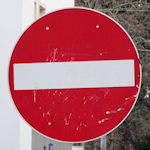
Every country and city has its little (or big) idiosyncrasies. Vienna is no different. So, before you inadvertently find yourself offending a local, here are some basic tips for navigating the jagged reefs of Viennese etiquette and behaviour.
- Expect plenty of leeway for tourists, of course
- See also:
Tip 1: Service is at the table
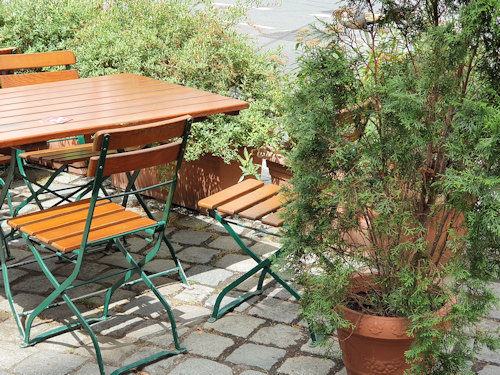
(Wait to be served)
Unless a restaurant, bar, or similar explicitly states “Selbstbedienung” (self-service), then assume service is at your seat.
It’s rather horribly impolite to go up and order at the counter in such circumstances. And you might require a tick more patience than you’re used to, particularly after your initial order. In coffee houses, for example, minutes and hours are in no rush to pass (and that’s a good thing).
- Learn more about ordering and paying for food
Tip 2: Tip, too!
Equally, this table service is typically not included in your bill.
If you walk away from a bar or restaurant without tipping, then you’re basically saying you were upset about the service. So tip as a matter of course (unless you genuinely had a terrible experience).
- Learn more about tipping in Vienna
Tip 3: Keep right on escalators
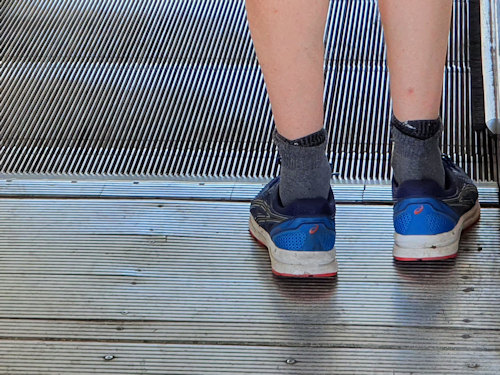
(The correct way to tackle the escalator)
Not sure an explanation is needed. Essentially, keep the left side free for people in a rush.
As a little bonus, be aware that very, very occasionally you find a single, standalone escalator next to a set of steps and the escalator actually moves down, not up.
I haven’t figured out when or why that rare and somewhat illogical event occurs. Perhaps it’s a social experiment run by city scientists. Or perhaps the universe merely chooses to remind us there are no certainties in life.
Tip 4: Queue pragmatically
They do queue in Austria. Just not always as readily or politely as you might expect from places like the UK.
Where there’s a counter (like at the supermarket bakery), people are normally quite social in terms of queueing and giving way to those who were there first. Where there is no counter, they’re not always so diligent.
This applies particularly at bus, train and tram stops, where whoever’s nearest to the doors tends to get on first. Since you buy tickets in advance and don’t need to show them to a driver, there is no requirement to enter a vehicle at the front.
When I first arrived here, my wife used to wonder where on earth I’d got to because I invariably formed a queue to get on the tram. Which meant I was basically always last to board. (And last to exit.)
Oh, and let people get off before you enter a vehicle. The Viennese can become quite stroppy with folk who don’t follow that simple, logical rule.
- Learn more about how public transport works
Tip 5: Avoid littering
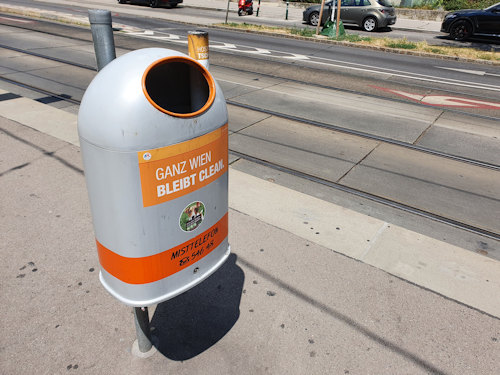
(A common sight in Vienna)
That’s obvious, but even more obvious in Vienna.
One of the many delightful aspects of the city is that the streets remain astonishingly litter-free. A small army of orange-clad staff and vehicles keep everything clean and bins empty.
You rarely go more than a few steps without finding these bins, even specific ones for particular kinds of waste (e.g. Papier – paper, Verpackung – plastic packaging, Glas – glass, Restmüll – other waste), and pipes for cigarette butts.
Tip 6: Carry some cash
Electronic payments, particularly via debit systems, are commonplace, but traditional credit card payments, for example, are by no means universally accepted in restaurants and stores.
Payment digitalization is well advanced in places catering to foreign tourists and progressing more generally in the wake of the COVID pandemic, which made cashless hands-free payments more attractive.
Nevertheless, be aware that the Viennese still like to use cash, particularly in cafés, and some locations (like a coffee house) may not take cards at all.
The seasonal markets (at Christmas, Easter and New Year) remain relatively cash-oriented, too. And you may need coins for public toilet facilities (usually 20c or 50c) and lockers in museums (usually €1 or €2).
- Learn more about credit cards and Vienna
Tip 7: Say cheers
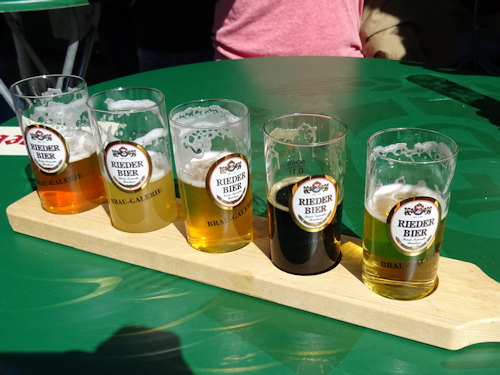
(A beer sampler at a summer festival)
If you’re out with locals, don’t start drinking anything alcoholic until you’ve acknowledged the other drinkers with a raised glass and a resounding “Prost” (cheers). And don’t start drinking until everyone has their beverage, unless they tell you to go ahead without them.
- Learn more about drinking etiquette in Austria
Tip 8: Offer a cheery greeting
The Viennese are way less into greeting than people out in the country. However, when you enter a store or restaurant, you might get a “Grüß Gott” (a formal kind of “hello”) from employees.
You’re kinda supposed to say “Grüß Gott” back. If German’s not your thing, say “hello” with a clear non-German accent and you should be fine.
Until recently, if you were meeting locals, you expected to have your hand shaken. When someone arrived to join a group, even a relatively large one like the parents at a school meeting, they usually went around everyone to shake their hand in greeting.
This handshake habit died out almost completely during COVID.
People have since reverted back to handshakes to some extent, but nothing like before. Many of my friends have stayed with fist bumps, for example, or only a verbal greeting.
Time will tell if the handshake makes a complete recovery.
I’ll write about the intricacies of Austrian greetings another day, when I have a spare month for the project.
Tip 9: Don’t be offended by smokers
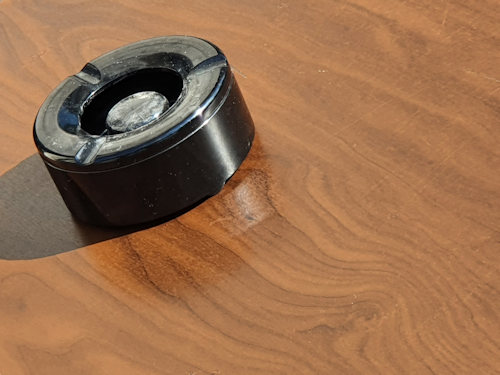
(Mostly only found outdoors nowadays)
Attitudes toward smoking are not as negative in Vienna as in countries like the US or UK. Smoking is banned in the usual places (and people keep to those rules), but more folk smoke than you might expect in a modern western society.
So you may find smokers standing outside the bar, for example. You won’t, however, find them inside: Austria has a blanket ban on smoking in restaurants, pubs, etc.
Having said that, I can’t recall the last time I had any significant encounter with someone smoking in public. So perhaps this is another habit on the wane.
- Learn more about Vienna and smoking
Tip 10: Stay hungry on public transport
It’s generally not the done thing to eat anything when travelling by public transport, but particularly if it has an aroma. Save your schnitzel sandwich for later.
Eating food is actually forbidden on all subway trains. Oh, and consumption of alcohol is forbidden on any public transport.
Bonus tip
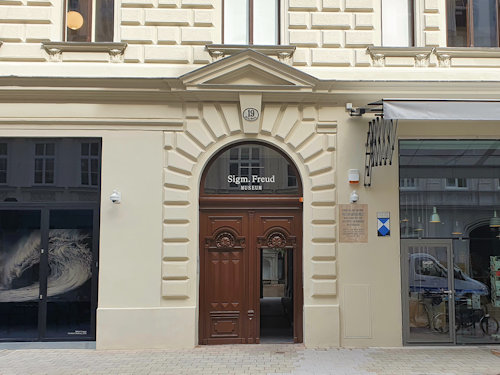
(The entrance to the Sigmund Freud Museum)
If you really want to fit in, then adopt a facial expression that suggests fate has dealt you plenty of rough cards already, you’re still expecting things to get worse, and having little to objectively complain about right this minute certainly won’t stop you from doing so.
Vienna is, after all, the birthplace of psychoanalysis.